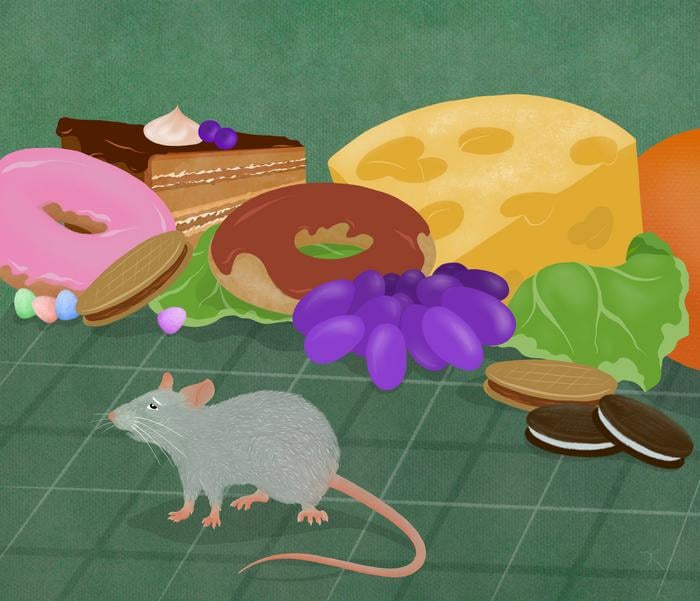Researchers at the Max Planck Institute for Biological Intelligence have identified the circuit in the brain that prevents mice from eating when they feel nauseous. The study reveals that special nerve cells in the amygdala, a brain region involved in emotional processing, are activated during nausea and elicit appetite-suppressing signals. These findings highlight the complex regulation of eating behavior, as the loss of appetite during nausea is controlled by different circuits than during satiety.
Wenyu Ding, the first author of the study, discovered a new cell group in the amygdala that negatively influences appetite. Unlike previously known cell types that are activated by satiety, these cells are activated when feeling nauseous. When the researchers artificially switched on these cells, even hungry mice stopped eating. Conversely, switching the cells off resulted in the mice eating, even when feeling sick.
Nausea Information Reaches the Amygdala and Distant Brain Regions
To better understand how this cell type exerts its appetite-suppressing function, the researchers analyzed the underlying circuit. They found that when a mouse feels sick, the information reaches the brain and eventually the amygdala. There, the newly discovered cell type is activated and sends inhibitory signals to distant brain regions, including the parabrachial nucleus, a brain stem region that receives information about the body’s internal state.
This circuit differs from the one involving the previously known cell type, which mainly interacts with neighboring cells within the amygdala. These findings demonstrate that the loss of appetite during nausea is regulated differently than the loss of appetite during satiety, with different cells and circuits responsible for each.
The study provides important insights into how the brain, particularly the amygdala, regulates eating behavior. This knowledge is crucial for better understanding the many diseases associated with dysregulated eating behavior in humans.
The research was conducted by scientists in Rüdiger Klein’s department at the Max Planck Institute for Biological Intelligence and sheds new light on the complex mechanisms behind appetite regulation during nausea.


